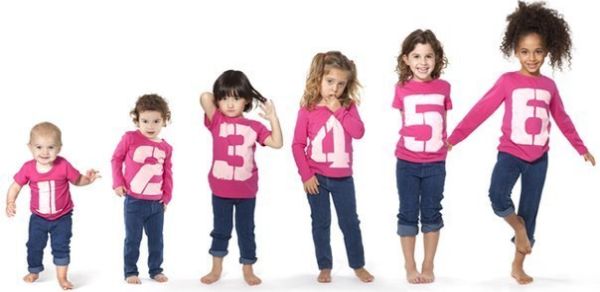Age (Возраст)

"How old are you?" It's a simple question, and there's usually a simple answer: 'sixteen years old', 'twenty years old', 'fifty-five', etc.
• «Сколько тебе лет?» Это простой вопрос, на который обычно дают простой ответ: «16 лет», «20 лет», «55 лет» и т. п.
But if someone is described as 'young' or 'middle-aged' or 'old', then how old are they?
• Но если о ком-нибудь говорят как о человеке «молодом», или «среднего возраста», или «старом», то сколько же ему лет?
It's difficult to know because these words have different meanings for different people.
• Это трудно узнать, так как эти слова имеют разное значение для разных людей.
Except for the word teenager, which describes young men whose age are between thirteen and nineteen (i.e. in the English words which describe ages syllable 'teen' is present), other words which describe age are not exact.
• За исключением слова «тинейджер», которое относится к подросткам, возраст которых находится в пределах от тринадцати, «thirteen», до девятнадцати, «nineteen» (т. е. в английских словах, обозначающих их возраст, присутствует слог «teen»), слова, которые говорят о возрасте, неточны.
When, for example, does a baby stop being called a baby and become a young child?
• Когда, например, младенца перестают называть младенцем и начинают называть маленьким ребенком?
When does a boy become a young man and a little girl become a young woman?
• Когда мальчик становится молодым мужчиной, а маленькая девочка становится молодой женщиной?
At what age does middle age begin?
• Когда наступает средний возраст?
When do you call someone elderly and not simply old?
• Когда мы называем кого-то пожилым, а не просто старым?
At what age does someone become an adult?
• В каком возрасте становятся взрослыми?
In some countries, like Britain, France, and the United States, it is when the government says a person is old enough to vote.
• В некоторых странах, таких как Великобритания, Франция и Соединенные Штаты, это происходит, когда правительство считает, что человек достаточно взрослый, чтобы голосовать.
Is that really the difference between a child and an adult?
• Действительно ли в этом заключается разница между ребенком и взрослым?
The answers to these questions partly depend on how old you are.
• Ответы на эти вопросы частично зависят от того, сколько Вам лет.
There is a saying that old age is always ten years older than yourself.
• Существует поговорка, что старый — это всегда на десять лет старше тебя самого.
If you are a youth of fifteen then you think someone of twenty-five is old.
• Если Вы юноша 15 лет, тогда Вы считаете кого-то, кому 25, старым.
At thirty, forty seems old. If you are seventy, then you probably think someone of eighty is old.
• В 30 лет 40-летний кажется старым. Если Вам 70 лет, тогда Вы, возможно, считаете старым кого-то 80-летнего.
A recent survey showed that there was some truth in the old saying
• Последние исследования показали, что в старой поговорке есть доля правды.
People were asked, "When is middle age?" Those in their early twenties usually answered, "Between thirty-five and fifty", and people in their thirties answered, "Between forty-five and sixty".
• Людям задали вопрос: «Когда наступает средний возраст?» Те, кому было слегка за 20, обычно отвечали: «Между 35 и 50»; а те, кому исполнилось 30 лет, отвечали: «Между 45 и 60».
Questions:
1. How would you describe yourself: young, old, middle-aged, a boy, a man, a girl, a woman?
2. When is someone considered to be adult in your country?
3. What are the signs of ageing?
4. How important is age? In marriage? In work?
Vocabulary:
• young — молодой
• middle-aged — среднего возраста
• teenager — подросток, тинэйджер
• baby — младенец
• elderly — пожилой
• adult — взрослый
• government — правительство
• youth — юноша, молодой
_______________________________________________
"How old are you?" It's a simple question, and there's usually a simple answer: 'sixteen years old', 'twenty years old', 'fifty-five', etc. But if someone is described as 'young' or 'middle-aged' or 'old', then how old are they? It's difficult to know because these words have different meanings for different people.
Except for the word teenager, which describes young men whose age are between thirteen and nineteen (i.e. in the English words which describe ages syllable 'teen' is present), other words which describe age are not exact. When, for example, does a baby stop being called a baby and become a young child?
When does a boy become a young man and a little girl become a young woman? At what age does middle age begin? When do you call someone elderly and not simply old? At what age does someone become an adult? In some countries, like Britain, France, and the United States, it is when the government says a person is old enough to vote. Is that really the difference between a child and an adult?
The answers to these questions partly depend on how old you are. There is a saying that old age is always ten years older than yourself. If you are a youth of fifteen then you think someone of twenty-five is old. At thirty, forty seems old. If you are seventy, then you probably think someone of eighty is old.
A recent survey showed that there was some truth in the old saying. People were asked, "When is middle age?" Those in their early twenties usually answered, "Between thirty-five and fifty", and people in their thirties answered, "Between forty-five and sixty".
Оставить комментарий
Для комментирования необходимо войти через ![]() Вконтакте
Вконтакте
